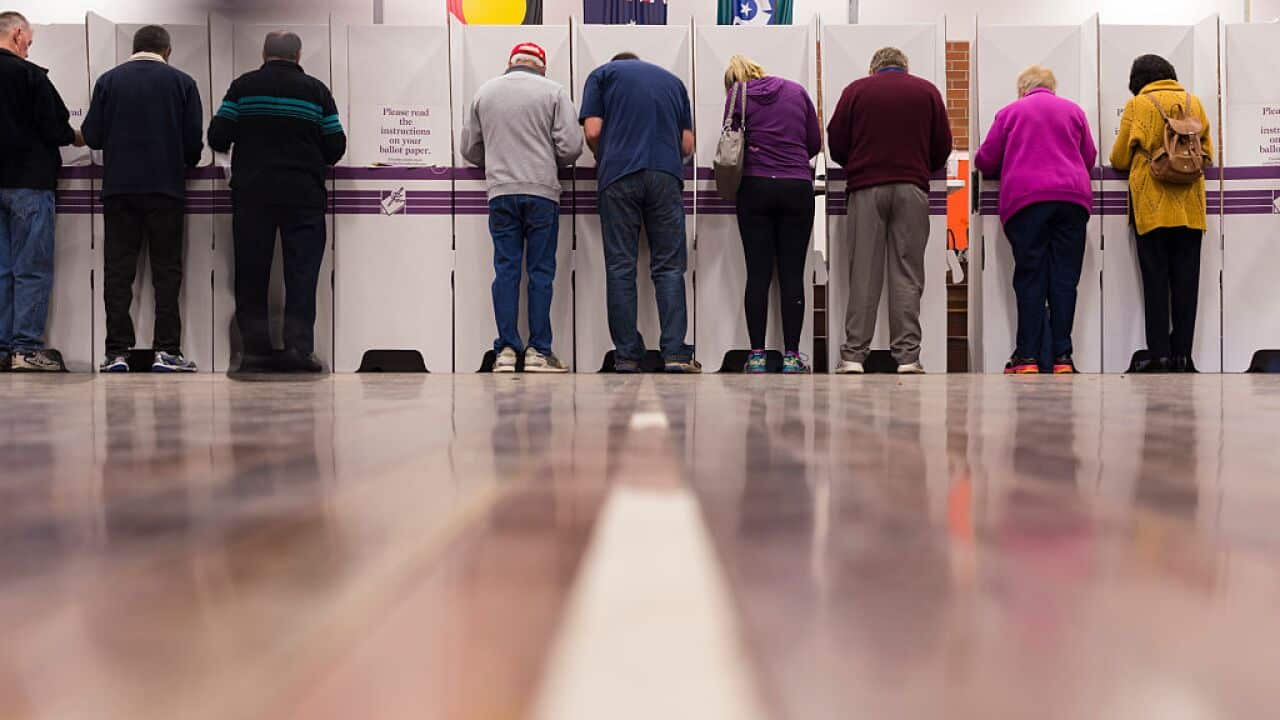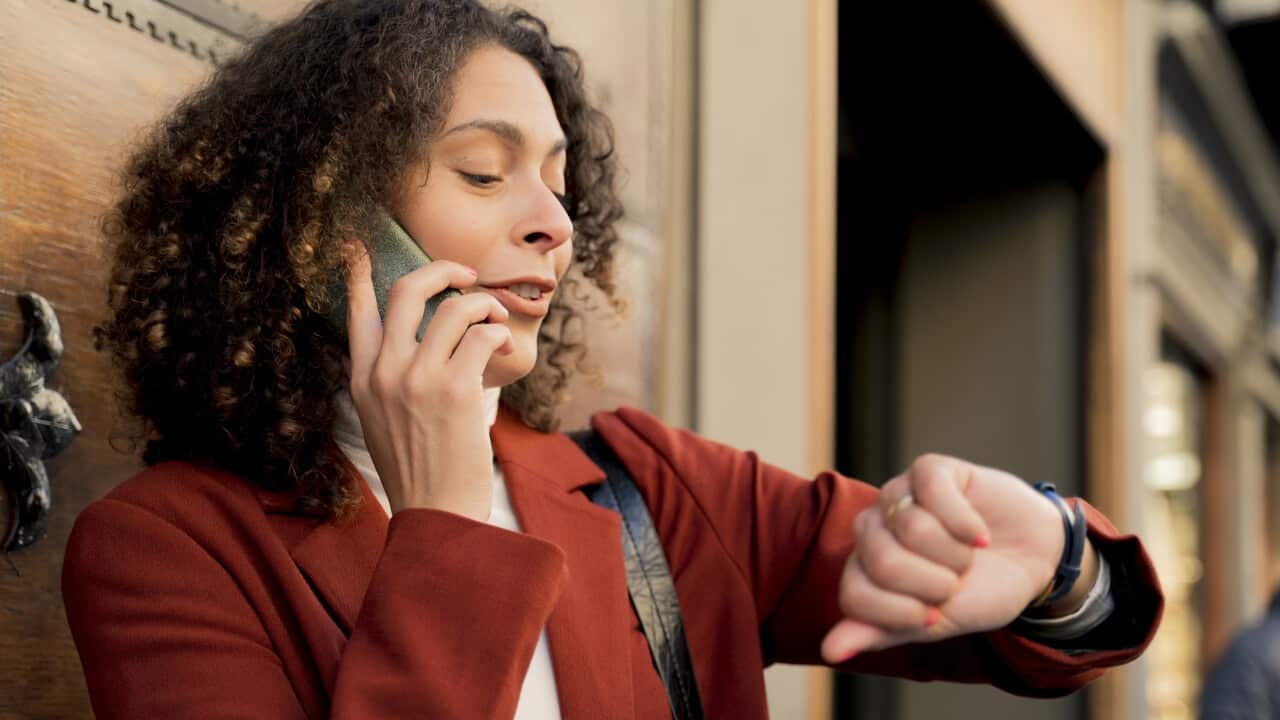سری پودکاستهای مهارتهای شما را در زمینه مکالمه، درک و ارتباطگیری در آسترالیا تقویت میکند. قسمتهای قبلی را
این درس مناسب زبانآموزان سطح متوسط تا پیشرفته است. بعد از گوش دادن به این قسمت، با انجام دادن آزمونی که در پایان یادداشتها قرار دارد، مهارت خود را امتحان کنید.
Learning notes
Lesson language objective
Talking with confidence about elections and voting in Australia
Different ways to say I am voting:
- I’ll exercise my right to vote.
- I am going to the polls.
- My vote matters.
- I’ll cast my vote.
- I’ll cast my ballot.
- I’ll fill out ballot papers.
- I want my voice to be heard, so I will be voting.
Different phrases to talk about the election:
- In Australia, you have to rank the candidates.
- Good on ya, for researching the pollies.
- I heard in the news that the incumbent MP of our electorate is a shoo-in.
- My vote matters.
- I feel very proud that I have voted.
Colloquial expressions:
Polly/Pollie – Politician, a person who is professionally involved in politics. If you want something changed, you should speak to your local pollie.
Good on ya – Short for “good on you” or “well done”. Good on ya for getting good grades this term!
Shoo-in – someone who is very likely to win a contest or other competition. Lily is the shoo-in for the leading role in a play.
MP – Short for “Member of Parliament”. The local MP will be speaking.
Democracy sausage (in a) sausage sizzle - name for a sausage wrapped in a slice of bread, bought from a sausage sizzle fundraiser at Australian polling places on election day.
Vocabulary:
Mudslinging - saying negative things about an opponent during a political campaign, also known as ‘dirty politics’. I can’t stand the mudslinging! I don't care about a politician's personal life.'
Incumbent - A person who currently holds a political post or office. The incumbent is doing everything he can to stay in office.
Pork barrelling – A politician offering financial incentives for an electorate to try to get people to vote for him/her.
Electorate - The area that an elected Member of Parliament represents. He represents my electorate, Durack in Western Australia.
Ballot paper - The paper that lists the names of the people you can vote for and their political parties. There are two ballot papers: one for the House of Representatives and one for the Senate. Use the ballot paper to rank the candidates in this election.
Cultural information:
As one of the world’s oldest democracies, Australia uses a voting system called ‘preferential voting’. This means that voters rank each candidate according to their preference, that is they list them in order from the one they like best to the one they like least.
Voting in Australia is compulsory. This means that all citizens aged over 18 must vote. If you don’t vote and don’t have a valid reason for not voting you will need to pay a fine.
Federal elections are typically held every three years. While the Prime Minister decides on the date of elections, they will always be on a Saturday.

Sausage sizzles Source: Getty Images / AsiaPac
Transcript
(Note: This is not a word-for-word transcript)
Hi! Welcome to the SBS Learn English podcast, where we help Australians to speak, understand and connect.
My name is Josipa, and like you, I'm learning, not just the English language but also about Australian culture.
And this week, I’ve been getting into politics so we can learn how to talk with confidence about elections and voting in Australia.
Election fever is around the corner. That means that people, and media especially, are getting excited about the day when we elect members for the next Australian Parliament.
I’ll vote for the first time in the next federal election, and I take that responsibility very seriously.
That's why I want to learn as much as I can about the voting system in Australia.
But I didn't realise how complicated talking about elections can get. Luckily for me, I love a good challenge.
Listen to this sentence,
As election fever intensifies, the political mudslinging between Opposition pollies and the incumbent government becomes more bitter and scandalous.
See what I mean? Half of these words I had to look up in a dictionary.
And this is what I found out:
Political mudslinging is when politicians – or for short, pollies - deliberately say bad things about each other. This process can also be called negative campaigning.
The word incumbent refers to someone who is currently holding a post or office. So the incumbent government is the government currently in power.
My friend Lily is also a first-time voter. Let’s hear how she talks about voting with our friend Allan.
Lily:
I’m a little nervous about going to the polls. Voting here is so different from back home. In The Philippines, you vote for who you like and that’s it. Here, you have to rank the candidates.
Allan:
Good on ya for researching the pollies. You’ll do fine. Just remember that you’ll be filling out two ballot papers today.
Lily:
One for the Senate and one for the House, yeah? I heard in the news that the incumbent in our electorate is a shoo-in.
Allan:
Yeah, that’s what I heard too. Well, let’s see if that’s true. You know what I’m looking forward to after the elections? No more political mudslinging!
Josipa:
Wow! There were quite a number of words and phrases that we just heard from that conversation between Lily and Allan.
Let’s break them down:
First Lily said,
I am nervous about going to the polls.
Going to the polls or polling station means going to the place where you can vote. So, instead of saying “I’m going to vote”, you can say “I’m going to the polls”, and that would mean the same thing.
Lily then said:
Here, you have to rank the candidates.
National elections in Australia use a voting system called ranked voting. And ‘to rank candidates’ means to list them in order of preference.
So, you put number 1 next to the name of the candidate you like best; number 2 would be your second choice and so on.
Allan then said,
Good on ya for researching the pollies. Just remember that you’ll be filling out two ballot papers.
“Good on ya!” means “well done”. “Ya” is an informal way of saying “you”. So basically, Allan said that Lily did a good job doing her research.
Let‘s hear Allan’s second sentence once again.
Just remember that you’ll be filling out two ballot papers.
Filling out two ballot papers.
“Filling out" two ballot papers. “Ballot papers” are the sheets of paper that list the names of the pollies in the Senate and the House of Representatives.
A green ballot paper is for the House of Representatives, and a white ballot paper is for the Senate.
Remember that voting systems may vary in different Australian states, but generally, you need to fill out these two ballot papers when voting.
Lily then said,
I heard in the news that the incumbent MP in our electorate is a shoo-in.
The incumbent MP in Lily’s electorate is a shoo-in.
The incumbent MP refers to the Member of Parliament who is currently in power at Lily’s ‘electorate’.
The electorate is the area that an elected Member of Parliament represents. There are 151 federal electorates in Australia and, as a result, we have 151 MPs, one for each electorate.
So, according to the news, the incumbent MP in Lily’s electorate is a “shoo-in”, which means that the media report that this pollie, a politician, in Lily’s electorate is certain to win.
You can use the term “shoo-in” when talking about other things, not just politics.
For example, let’s say that Lily is an actress who is very likely to get a role in a new theatre play.
I could say, “Lily is the shoo-in for the main role in a play".
That means that Lily has a great chance of getting the leading role. But just because she is the favourite for it, it does not mean that she’ll definitely get it. Just like it doesn’t mean that the incumbent MP in Lily's electorate will win, even though the media call him a shoo-in.
Now, let’s imagine that Lily and Allan are at the polling station, and they have just voted.
Allan:
You’ve exercised your right to vote, Lily! How do you feel now?
Lily:
I feel great! My vote matters. I feel very proud that I have voted.
Allan:
Well, it can take up to 10 days for votes to get counted. But you know what we can do now? We can go get a democracy sausage at the sausage sizzle!
Josipa:
All of a sudden, “exercising” has something to do with voting, and there is a thing called “democracy sausage”?
Oh well, let’s hear these phrases once again,
First, we heard Allan,
You’ve exercised your right to vote.
While we know that typically exercising has something to do with fitness, “exercising” here means using our right to vote.
So, you can say, "I exercised my right to vote".
Lily then said,
My vote matters. I feel very proud that I have voted!
Lily said that her vote matters, and she is right because every vote can affect the result of an election, and it will determine who will form the next government.
We also heard Lily saying that she is proud to have voted.
Another expression you can use to say that you are going to vote in an election is "I’ll cast my ballot".
The word “cast” can be tricky because it means a lot of things. In this particular context, “to cast a vote” means “to put in your vote” so fold up your paper with your selections and place it in the box.
And lastly, Allan said,
We can go get a democracy sausage at the sausage sizzle!
“Democracy sausage” is the name for a sausage wrapped in a slice of bread, bought from a “sausage sizzle” -- a barbecue stall/stand -- at polling stations. This is a uniquely Australian expression.
Sausage sizzles are community fundraiser events where the sausages are sold, and they can be found in polling areas during elections.
Community fundraiser events are events organised to raise money for a specific cause or charity.
So, after exercising your right to vote, don’t forget to enjoy your democracy sausage.
Today, as our guest, I invited the Editor of SBS’ Settlement Guide project. Her name is Roza Germian.
Josipa:
Roza, welcome to our podcast.
Roza:
Thanks for the invite, Josipa.
Josipa:
Under the Settlement Guide umbrella, you publish podcasts, videos and articles that help new migrants settle in Australia in 63 languages. I know you cover a lot of topics on health issues, visas, jobs and other important issues, but have you produced anything on the upcoming election?
Roza:
Absolutely. We will be providing lots of helpful and interesting stories about the Federal Election. As a first-time voter, Josipa, you might find a video that we'll be releasing particularly interesting.
Josipa:
What is it about?
Roza:
Our How to Vote video explains everything you need to know about the voting system in all Australian states. We also take a look at the ranking system and describe how votes are counted.
Josipa:
I'm very interested to learn how are votes counted?
Roza:
Well Josipa, you’ll have to watch our video to find out. It will be available in languages such as Arabic, Mandarin, Cantonese, Kudarati, Kurdish and many more. You can visit the for more information.
A big thank you to our educational consultant Professor Lynda Yates, our guest Roza Germian, Winmas Yu, and Paul Nicholson and Nikki Alfonso-Gregorio who voiced the characters of Allan and Lily.





